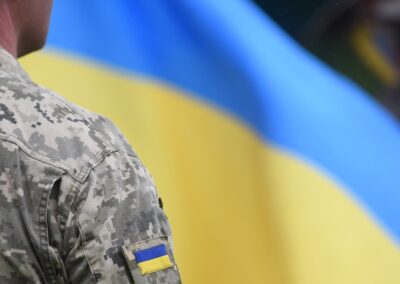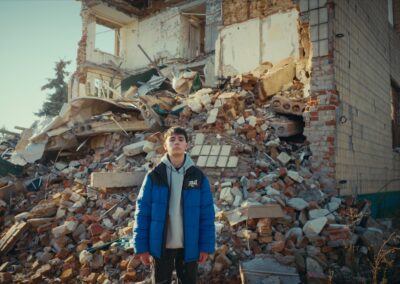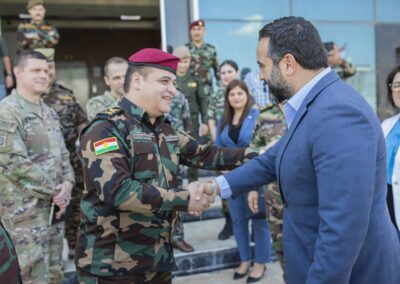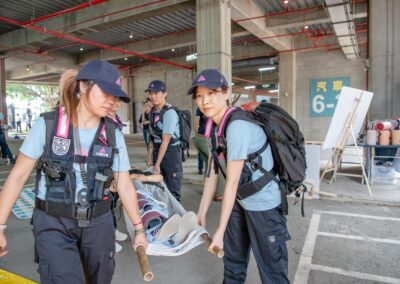Serving, Beyond the Uniform
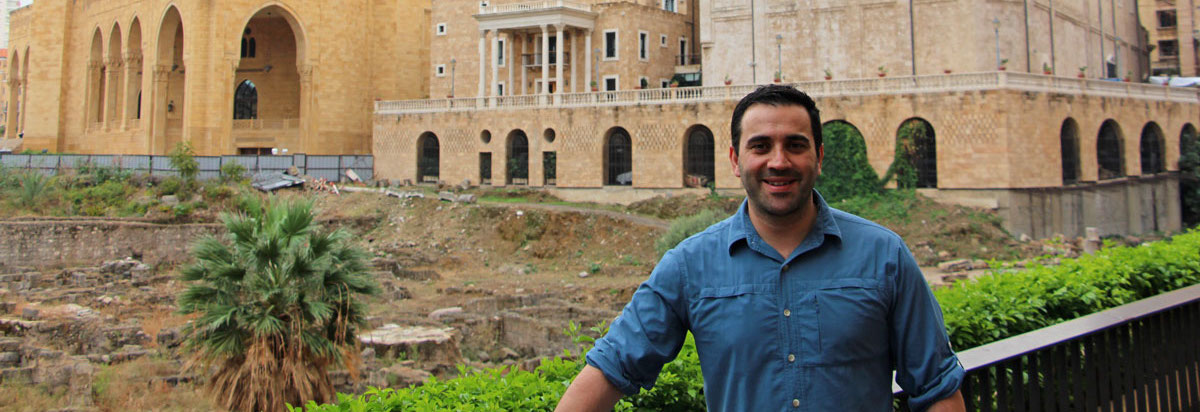
Serendipity can be defined as the intersection of ability and opportunity. It was my time in military uniform followed by my overseas aid work that bequeathed upon me the necessary skills (ability). And it was during a chance encounter with Isaac Eagan and Matthew Fielkow in Erbil, the capital of Iraq’s semi-autonomous Kurdish region, when I first learned about Spirit of America (opportunity).
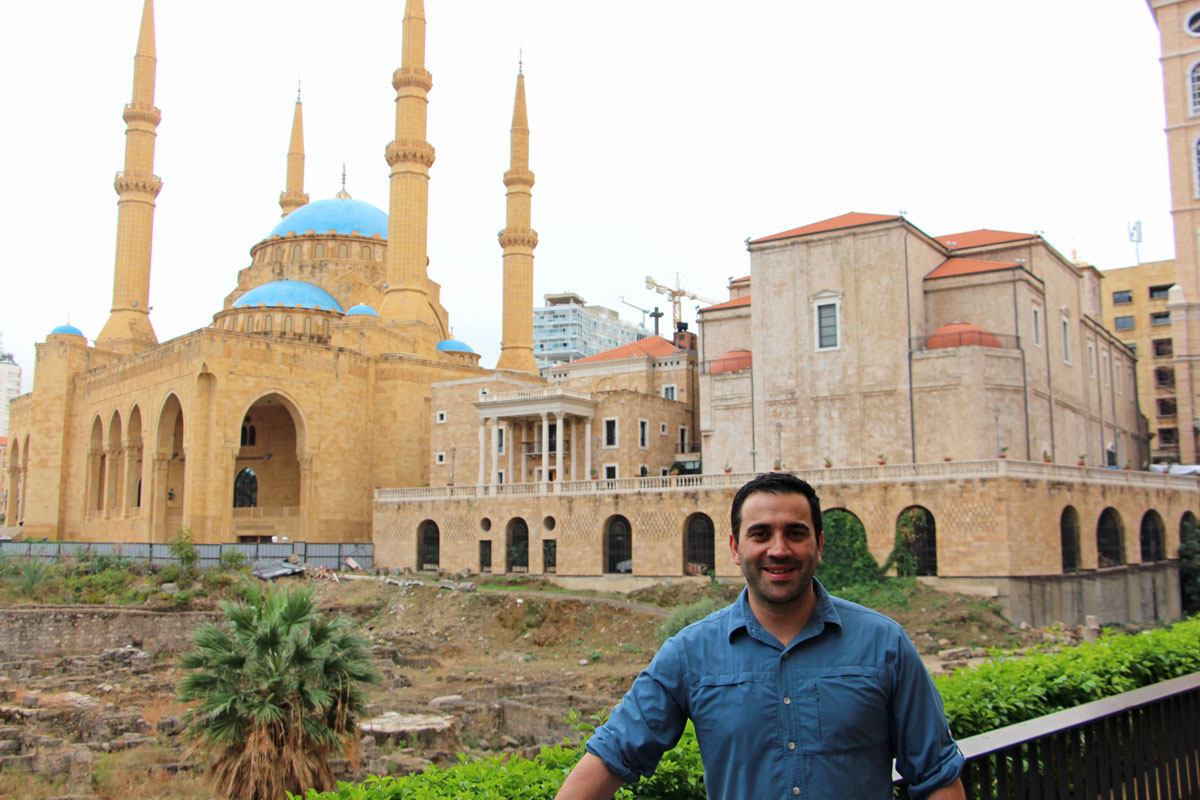 Zack Bazzi in Downtown Beirut
Zack Bazzi in Downtown Beirut
A spring night in Erbil in temperate weather can be magical. I was in the region researching a master’s project and working on an initiative that I co-founded to advance the education of refugees in the region. In the evening, I met up with a friend of mine at a local eatery. Isaac and Matt were with him. Obligatory introductions were made then we got down to the business of getting to know each other and asking the (clichéd) questions that veterans ask when they first meet: military specialty, unit, years served, deployments and so on.
The pair worked for Spirit of America – SoA. What does this organization do? They explained: SoA supports local needs identified by deployed U.S. personnel. Lines of support can be humanitarian, economic, or nonlethal in nature. It’s a non-governmental organization undertaking principled work — and it’s not neutral. SoA sides with America’s frontline troops and diplomats.
I was intrigued.
Three months and nearly a dozen interviews later, I became an official member of the team. I started work Monday, October 5th. A week later, I was on an airplane.
First stop: Fort Bragg, North Carolina. This was my first time at the home of the storied 82nd Airborne Division. Throughout ten years of Active Duty and National Guard service, I trained on many military bases, but never Fort Bragg. We briefed Army civil affairs teams on our mission and ways that we can support their efforts.
Being back on an Army base stimulated a measure of nostalgia in me. It also reminded me why SoA’s work is so vital and relevant. In a hyper-connected world where economics, war, and peace are all globalized, the litany of complex problems facing countries and institutions can no longer be addressed solely through the conventional set of delineated actors. The networked challenges of the modern world order necessitate a diverse ecosystem of stakeholders to effectively manage them, including organizations like Spirit of America that carefully straddle the delicate divide between development and security.
Briefings were delivered, meetings convened, and business cards exchanged. It was time to go overseas and earn our paychecks.
Second stop: Istanbul, Turkey. In the magnificent setting of one of history’s most celebrated capitals, we met with military counterparts and discussed ongoing projects. I also took advantage of the opportunity and visited the famous Galata Tower, shopped at the labyrinthine bazaar, and jumped on a quick cruise of the Bosphorus Strait that separates Europe from Asia.
Third stop: Erbil, Kurdistan Region of Iraq. I’ve been living in or visiting the Kurdish capital for more than two years now. Each time I go back, my friends welcome me to my “home away from home.” So in between meetings with U.S. officials, I squeezed in cups of overly sugared tea with dear friends. While there, I had the pleasure of finalizing efforts to provide non-lethal assistance support to peshmerga military units. More than any other ground force, the Kurdish peshmerga have been the most aggressive and successful in taking the fight to ISIS.
Fourth stop: Amman, Jordan. More of the same: meetings and planning. Situated on a series of mounts and wadis, the Jordanian capital is a dizzying array of topography, traffic, and crammed living structures that unnaturally cling to the steep slopes of the hills. At the turn of the 20th century, Amman was home to a few thousand Ottoman subjects. Today its population tops four million. This exponential growth has resulted in a contradictory atmosphere of sorts: modern buildings in the midst of a most ancient setting.
Fifth and final stop: Beirut Lebanon. I connected with the civil affairs team in country and started the planning process on several exciting initiatives – stay tuned!
But there was more…
This segment of the trip was particularly poignant for me. I had not returned to the country of my birth in the nearly quarter century since my family emigrated. My work for SoA brought me back, yet I found myself eager to reconnect with the scenes of my childhood. Similarly, I was delighted to go back to Lebanon as a proud American veteran in a position to support, in a small way, the ongoing stabilization efforts by the U.S. government. I was completing a circle, and feeling grateful that SoA afforded me this opportunity.
Walking by the ancient Roman columns in nouveau downtown Beirut, I could not help but observe that in Lebanon, as throughout the Middle East, there is no history— at least not in the temporal sense that we perceive it in the West. There, the past meshes seamlessly into the now – perpetually present, and ever looming over the future. This interlacing of the three dimensions of time is what imbues the culture of my birthplace with so much density and inertia. It is what makes it so captivating, especially to Westerners; conversely, it is what often makes it so bloody to those who live there. This inability to divorce the present from the past in many ways explains the continuing troubles of the region, and why the U.S. has such a difficult time formulating clear-eyed policies towards it.
With all my duties accomplished, I wrapped things up.
Three weeks on the road, four Middle Eastern countries visited, 21,000+ miles flown, and who knows how many meetings and cups of bad coffee. I flew back to Los Angeles feeling slightly drained, yet filled with vigor.
I am proud and fortunate to be Spirit of America’s field operations projects manager for the Middle East. It’s serendipity indeed.
Zack Bazzi
Middle East Field Operations Manager


